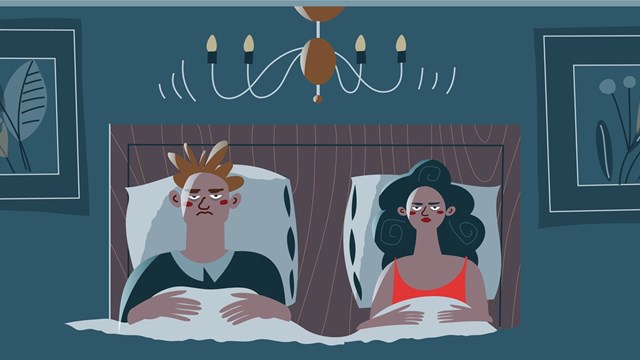
Q. I’ve lived in my Boston condo in a pre-war building for decades, but a problem has arisen. While the condo walls are well insulated against sound from adjacent units, the floor and subfloor, being constructed entirely of wood, barely provide any sound insulation from the condo on the next floor.
Two years ago, the owner above me installed a grand piano to practice on. The sound resonates into my home as if it’s actually in my living room! The piano practicing goes on for hours every evening until 10 p.m. (when association rules say it must end).
I’ve asked my board to curtail this person’s playing by having him stop at a reasonable hour, such as 8:00 p.m., but they have refused to do so. Even though there is a thin carpet under the piano, the sound clearly resonates through the piano legs directly to the floor and into my studio. Additionally, I have requested that special piano leg insulation be required, but here again, the board has refused to enforce it. I’ve tried a more direct approach, but all attempts to resolve the issue on a personal level have been to no avail.
The resonance of the piano sound is most disturbing and interferes with evening activities, such as watching TV, reading, or even playing my own music at a reasonable level. I am forced to wear noise-canceling headphones to avoid having to hear the hours of piano practice.
Is this person’s nightly piano practice in violation of any condominium laws? If not, is there anything that can be done to curtail the disturbing practicing, since the board doesn’t want to take any action?
—Sleepless in the City
A. “As association advisors, we are often asked about a board’s duty to deal with complaints between unit owners,” says Gina Desrochers, associate at Perkins & Anctil, PC, in Westford, Massachusetts. “During the peak ‘COVID years,’ we had a number of situations similar to this since many individuals were living, working, and schooling in the same place at the same time. These inter-resident disputes can be very challenging for boards, particularly if they do not impact the community as a whole (or even multiple residents). Given that a board’s fiduciary obligations run to the community as a whole, rather than any one individual owner/resident, it is important for a board faced with this situation to exercise appropriate discretion in terms of spending association resources to respond to these complaints. We also understand that a board may feel the need to become involved in these types of cases to ‘keep the peace’ within their community.
“Generally speaking, our guidance to boards dealing with similar issues is to refrain from aggressive enforcement action unless the violations impact multiple residents. We also typically remind individual owners who are aggrieved by conduct of their neighbors that they may have private rights of action to explore against those individuals. Residents should feel free to explore these rights with independent counsel, as this may be the more appropriate means of achieving a direct and tailored result for the affected individual.
“We will also counsel boards that, in these types of situations, they may wish to consider one or more of the following options:
“1. First, where the issue appears to be limited to an ‘inter-owner’ dispute, the board could send a notice to both owners reminding them of the appropriate restrictions (i.e., quiet hours, etc.) in the governing documents and reserving the right to take enforcement action. In these notices, we typically state that the board expects that the owners will resolve any issues between them without board involvement or action.
“2. Alternatively, the board could offer to attempt to mediate the issues by holding a hearing (Zoom or otherwise) with all parties involved. This allows the parties to have a neutral forum to voice their grievances. We have participated in many of these with other clients with varying degrees of success. The board is not obligated to do this, but again it may help to facilitate a resolution through dialogue (rather than legal action).
“We recognize that community living comes with challenges—noise, odor, and other attendant intrusions are often part of the equation. However, all residents should have the right to live in relative peace, and again, to that end, should explore whether they may have private rights of action.”






Leave a Comment